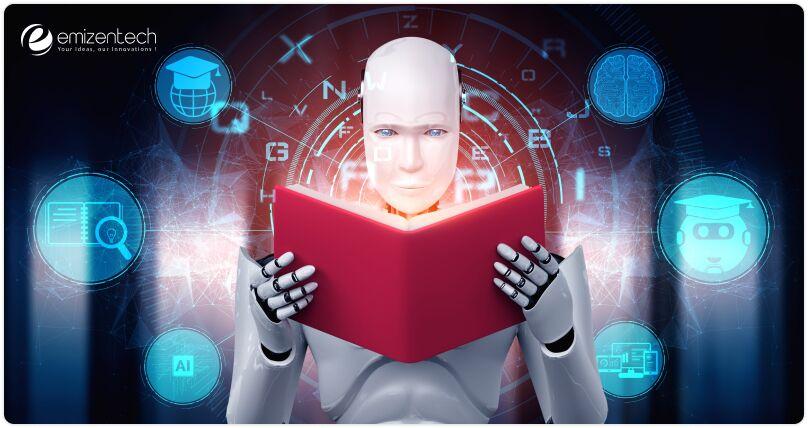The Evolution of Online Learning Platforms in 2025: Key trends & Innovations Reshaping Education
Online learning platforms have fundamentally transformed the educational landscape over the past decade, and 2025 marks a pivotal year in their evolution. With technological advancements, increased accessibility, and the necessity for flexible learning experiences, digital education is not just a choice—it’s an essential component of modern learning.In this comprehensive article, we delve into the evolution of online learning platforms in 2025, uncover the latest trends and innovations, explore their benefits, and offer practical insights into how these changes are shaping the future of education.
From E-Learning to Immersive Digital Education: A Brief Timeline
The journey of online learning platforms has been nothing short of remarkable:
- 2000s: Rise of basic e-learning modules and early Learning Management Systems (LMS).
- 2010s: Proliferation of MOOCs (Massive Open Online Courses) and blended learning models.
- 2020s: Acceleration fueled by global disruptions, integration of AI, and improved mobile accessibility.
- 2025: New era defined by immersive, personalized, and skill-based digital learning.
Today’s online learning platforms are no longer just repositories of video lectures—they’re dynamic, adaptive ecosystems that cater to diverse learning styles and global audiences.
Key Trends Shaping Online Learning Platforms in 2025
1. AI-Powered Personalization
Artificial Intelligence drives hyper-personalized learning journeys by analyzing student data, learning patterns, and preferences. features include:
- Smart content recommendations
- Adaptive quizzes and real-time feedback
- Automated grading and assessments
- Virtual tutors and 24/7 AI-driven support
2. Immersive Technologies: AR, VR, and XR
Augmented Reality (AR), Virtual Reality (VR), and Extended Reality (XR) have become mainstream in 2025. These technologies enable:
- Virtual laboratories for science and engineering
- Simulated environments for real-world skill practice
- Interactive 3D visualizations for complex subjects
- Remote collaborative learning experiences
3.Microlearning and Nano-Degrees
Learners increasingly prefer bite-sized content and stackable credentials. Online platforms offer:
- Short, focused modules (5-15 minutes each)
- Industry-recognized nano-degrees and certificates
- Pathways to quickly upskill or re-skill in targeted areas
4. Social and Collaborative learning
Community interaction is central to engagement and retention. Modern platforms integrate:
- Peer-to-peer discussion forums
- Live group projects using cloud-based tools
- Gamified leaderboards and achievement badges
- Networking with global mentors and alumni
5. Mobile-First and Offline Access
With smartphones as primary learning devices, platforms offer robust mobile apps with:
- Seamless mobile interfaces and responsive design
- Offline content downloads for on-the-go learning
- Push notifications for reminders and updates
6. Real-World Skill alignment
Courses are now co-created with industry partners,ensuring content matches current job market needs. Expect:
- Integrated internships and project-based assessments
- Virtual job fairs and employer showcases
- Automated skill mapping to career pathways
Benefits of Modern Online Learning Platforms
- Accessibility: Reach learners globally, bridging geographic and socio-economic gaps.
- Flexibility: Study at your own pace—anywhere, anytime.
- Affordability: Reduced tuition, travel, and resources costs.
- Customization: Tailored content adapts to individual strengths and weaknesses.
- Engagement: Gamification, AR/VR, and interactive content increase motivation and retention.
- Instant Feedback: Immediate scoring and personalized insights on assessments.
Practical Tips for Leveraging online learning Platforms in 2025
- Choose Accredited platforms: Opt for reputable, certified providers to ensure content quality and recognition.
- Utilize AI Tools: Engage with AI-driven progress trackers, personalized study plans, and virtual tutors.
- Participate Actively: Join discussion forums, attend live sessions, and collaborate on group projects.
- create a Learning Schedule: Set regular study goals and use platform reminders for consistency.
- Leverage Analytics: Monitor your progress and adjust your learning strategy based on detailed analytics.
- Seek Industry-Aligned Courses: Look for modules with real-world projects and recognized certification.
Case Study: How “FutureEdU” Transformed Corporate Upskilling in 2025
FutureEdU, a leading online learning platform, partnered with top technology firms in 2025 to provide AI-powered upskilling programs for employees. By integrating immersive VR simulations and personalized nano-course playlists, they achieved:
- 40% faster skill acquisition compared to traditional online training
- 87% engagement rates with gamified team challenges
- Real-time performance feedback, boosting retention and career progression
This partnership demonstrates the vast potential for online learning platforms to drive measurable outcomes and bridge the ever-changing skills gap in today’s economy.
First-Hand Learner Experience: Adapting to Self-Paced Digital Education
“Switching to a microlearning format on my platform made all the difference. I could fit a lesson into my commute or lunch break, and the AI recommendations kept the content relevant to my goals. The virtual study group feature meant I never felt isolated—in fact, I made professional connections across three continents!”
— Sarah Lee, Digital Marketing Professional & Lifelong Learner
The Future of Online Learning: What’s Next Beyond 2025?
Looking ahead, the rapid evolution of online learning platforms shows no sign of slowing down. Key areas to watch include:
- Lifelong Learning Ecosystems: Platforms that support continuous, cradle-to-career upskilling.
- Deeper AI Integration: Predictive analytics will anticipate learning needs and prescribe pathways.
- Global Credential Portability: Digital badges and blockchain-verified certificates will enable borderless education.
- Enhanced Accessibility: Universal design principles and multi-language support will ensure inclusivity for all learners.
Conclusion: Embracing the New Era of Online Learning Platforms
The evolution of online learning platforms in 2025 represents a watershed moment for education. With innovations powered by AI, AR/VR, and interactive collaboration, learners and educators enjoy unprecedented flexibility, engagement, and value. As education continues to adapt to new realities and expectations, embracing these digital trends is key to empowering individuals and organizations worldwide. Whether seeking personal growth, professional advancement, or institutional reform, now is the time to leverage the power of modern online learning platforms and prepare for a future where education truly knows no boundaries.

